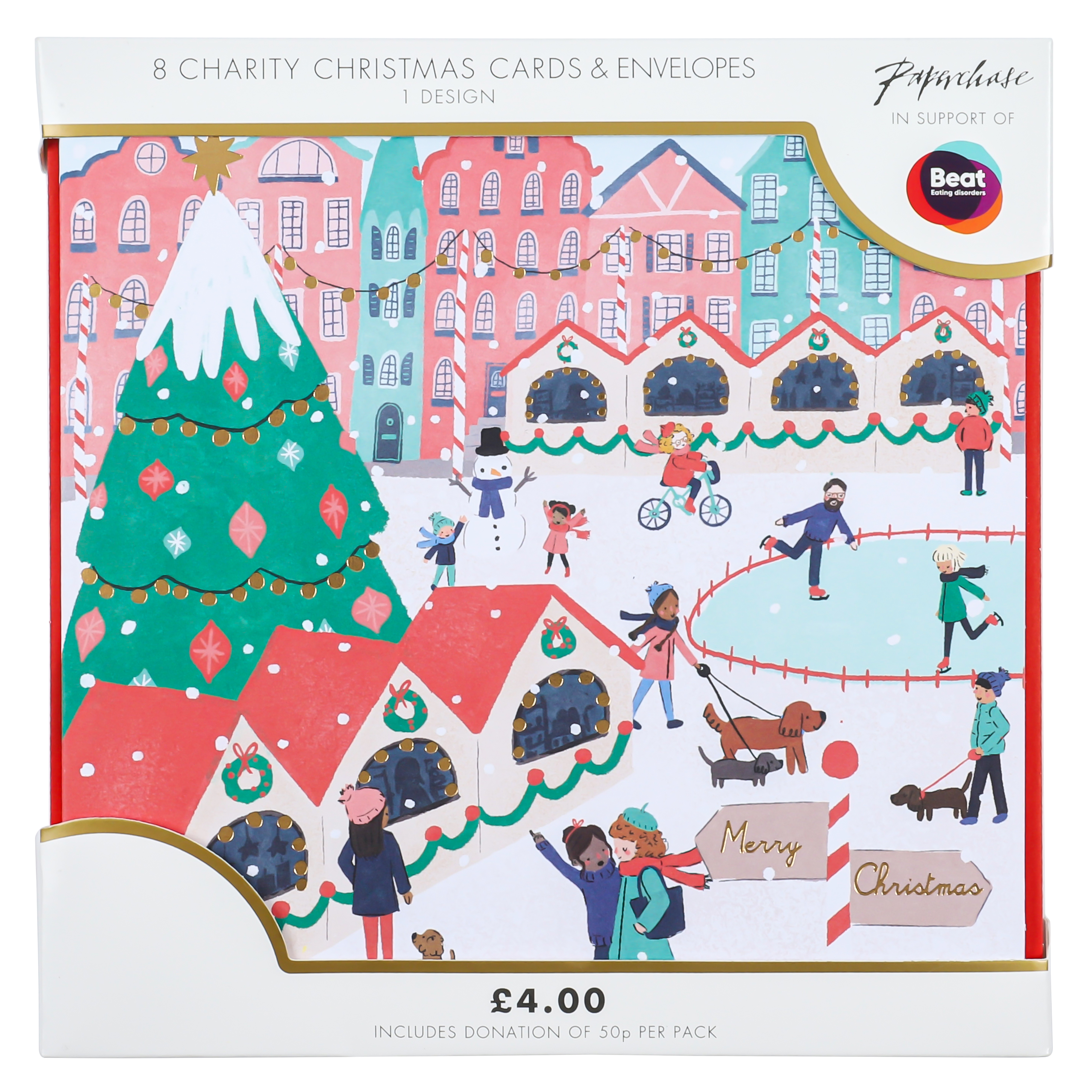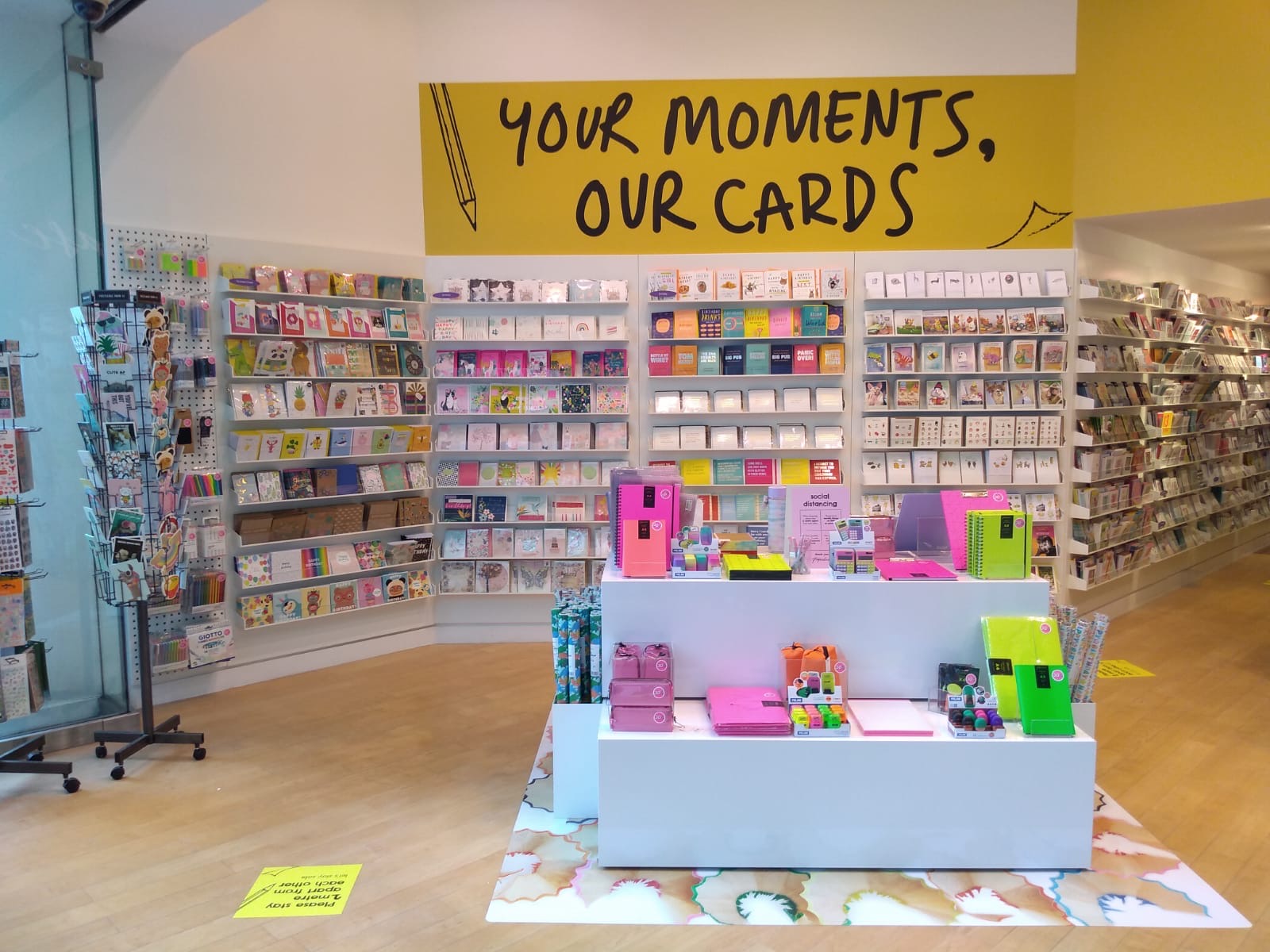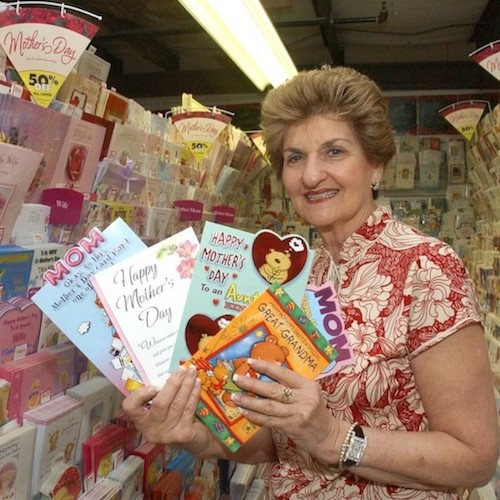A deep commitment to diversity and the environment have both been underlined as key priorities by Paperchase in the running of its business as well as the greeting cards it publishes and retails.
The retail group is in the throes of setting up a Diversity and Inclusivity Forum within its business, involving members of staff from various aspects of the company. Added to this, the greeting card buying team, headed up by Joe Guest has already taken definite steps to improve diversity on the card designs it stocks.

Joe, who this month celebrates his first-year anniversary of his appointment as senior card buyer of Paperchase, recognises and fully embraces the wider role cards can and should play in society, citing diversity and inclusivity as being key issues.
Paperchase was one of the first card retailers to ensure that it catered for the LBGTQ+ community, with the current offering spanning some 25 designs in its stores across birthday and occasions categories.
“At the beginning of the year, we made a conscious decision to ensure that our card selection would be a better reflection of the diversity within society. It needs to become the norm, not the exception. Any of our own brand designs now featuring people will feature diversity,” assures Joe.
“Diversity and inclusivity needs to be celebrated and recognised. Paperchase is setting up a Diversity and Inclusivity forum across all areas of the business so that important discussions can be had,” adds Joe. “Greeting cards have an important job to play in this; something that we cannot afford to ignore.”

A commitment to the environment is another “key area” cited by Joe. While Paperchase had already taken measures to reduce its environmental footprint, by considerably upping the percentage of unwrapped cards in its stores, there were concerns that the public might wrongly perceive wrapped cards as being ‘safer’ in light of Covid-19.
“Thankfully, none of our stores have reported that customers are turning away from naked cards,” says Joe.
Now, 80% of all the cards Paperchase stocks are sold naked (but the aim is to up this to 90%-95%), and it only stipulates the use of card clasps on its relations and occasions cards due to multi-pocketing the designs.

“A big change for us this Christmas is on our own brand charity packaged cards. There is no plastic used and the packaging generally has been minimised across all our Christmas boxes. We see it as very important to take a responsibility for our environmental footprint,” stresses Joe.
These measures have resulted in an annual reduction of 45 metric tonnes of plastic.

All of the inks Paperchase uses in print are soy-based, and from 2021 it is saying goodbye to any glitter that’s not biodegradable. The company is also starting to reduce and offset its carbon footprint, including by working with more local suppliers as well as by making more of its products and packaging recyclable.
Among the retailer’s other environmental gains include:
- Paperchase is introducing a set of eco icons designed to help customers understand a product’s eco credentials. These will appear on all own brand products.
- The retailer has saved 200,000 sheets of paper and 40,000 till rolls per year by moving to paperless processes.
- It has removed all excess and plastic packaging from its notebooks, which adds up to a saving of 2.6 metric tonnes of plastic every year.
- The company’s ‘tree index rating’ from environmental charity WWF has increased from 0 in 2015 to 2 (out of 3) in 2019.
- Paperchase’s gift cards are now made from paper instead of single-use plastic and it is also switching to paper carrier bags.

Top: The new Paperchase store in Ringwood.






















